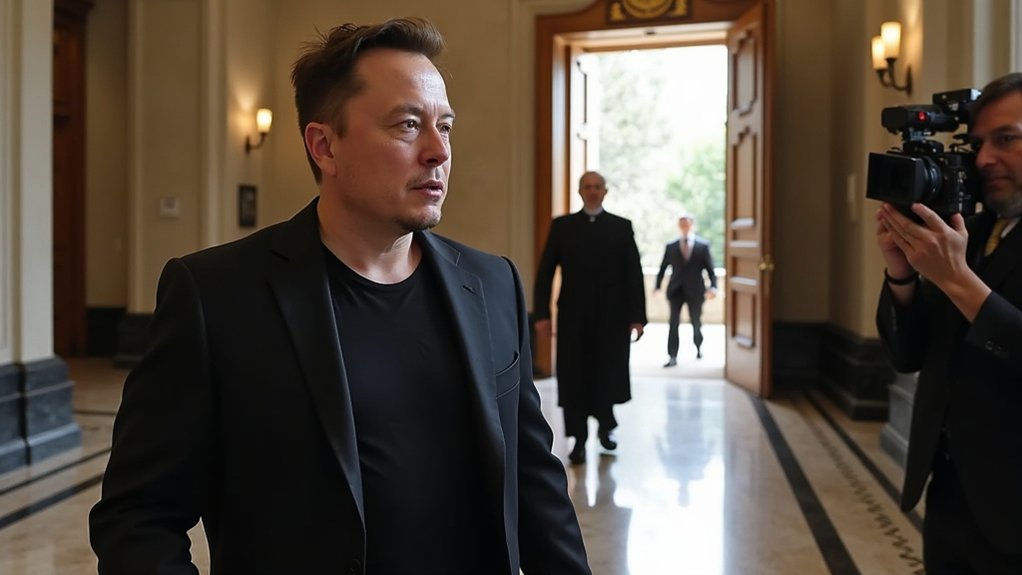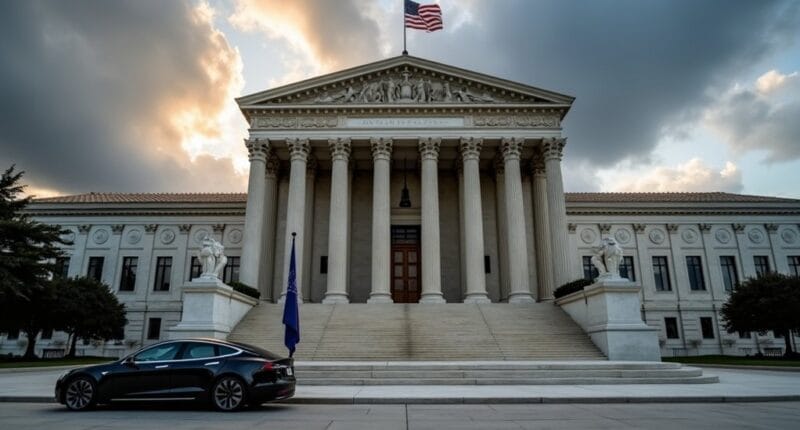Federal Judge Tanya Chutkan ruled Elon Musk must face a lawsuit over his controversial role in Trump’s Department of Government Efficiency. The tech billionaire allegedly wielded unconstitutional power without Senate confirmation, shutting down agencies and seizing data systems. Fourteen state attorneys general claim Musk acted as an unauthorized principal officer while his companies raked in $15.4 billion in contracts. The case could expose even more about the eccentric entrepreneur’s government dealings.

A federal judge dealt Elon Musk a major blow Thursday, ruling that the tech billionaire must face a lawsuit challenging his controversial role in the Department of Government Efficiency (DOGE). Judge Tanya Chutkan found plausible constitutional violations in Musk’s unprecedented position overseeing government restructuring without Senate confirmation.
Talk about overreach. Musk and his DOGE team allegedly wielded unchecked power over the Executive Branch, halting federal payments, closing agencies, and seizing data systems – all without any real authority to do so. The lawsuit, filed by 14 state attorneys general and advocacy groups, claims Musk acted as a de facto principal officer while technically being classified as a “special government employee.” Yeah, right.
DOGE’s unchecked power grab let Musk run wild through federal agencies, wielding authority he never legally possessed as a special government employee.
The drama started when President Trump created DOGE through executive order, fundamentally rebranding the U.S. Digital Service and handing Musk the keys to the kingdom. No congressional approval needed, apparently. His companies received $15.4 billion in contracts during this period. The court wasn’t buying it, finding that Musk lacked legal authority to direct government alterations since DOGE had no congressional authorization. With 296 active cases currently challenging various Trump administration executive actions, this lawsuit adds to mounting legal pressure.
The plaintiffs didn’t hold back, alleging concrete harms including loss of federal funds, unauthorized access to sensitive information, and improper termination of contracts. Judge Chutkan rejected attempts to dismiss Musk as a defendant, clearing the way for discovery and further fact-finding.
Even Musk’s announcement that he’s stepping away from DOGE couldn’t save him – the court clarified that constitutional violations could still be addressed. The lawsuit seeks injunctive relief to stop any further unconstitutional actions by Musk or DOGE.
It’s a messy situation that raises serious questions about executive power and proper government oversight. With the court finding sufficient evidence of potential Appointments Clause violations, Musk’s government efficiency experiment might end up being a costly lesson in constitutional law. Sorry, Elon – turns out running the government isn’t quite like running Tesla.





